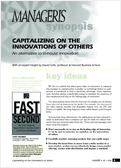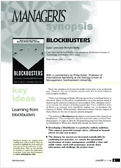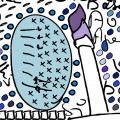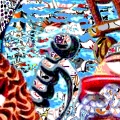Innovation

Luck, a skill to be developed
Without being intrinsically lucky, some people spontaneously do things that make good things happen to them. So what behaviors are conducive to luck, and how to implement them to develop what is actually a real skill?

Capitalizing on the innovations of others
Piggy-backing on the inventions of others, by transforming an original concept into a mass market, can be an attractive alternative to pure innovation strategy.

Lessons learned from blockbuster products
Among the hundreds of products launched every year, very few become real blockbusters. What practices can be used to increase the chances of spectacular success?

Building a close-knit and efficient team
The pandemic situation is leading to a period when working is reinvented. How can we combine the best of “everyone in the office” with this of “everyone working remotely”? This involves reviewing the fundamentals of what makes a team performant.

Get back into the habit of asking questions
Business leaders are rarely represented as people who question themselves. Yet, managers should be equally able to question as they are to affirm; but it seems this capability has somewhat been lost. How to get it back?

Thinking differently
We all have a natural preference for what is familiar to us. Yet, to adapt to circumstances, companies and their staff must constantly reinvent themselves, which requires that they get out of their usual thinking patterns. How can you nurture this healthy habit?

Online communities: How can we develop their value?
Employee, customer or expert communities are a real asset for companies. However, for them to succeed, the organization must involve itself—to a certain extent. How can we create the conditions for such a dynamic?

Improve the creative dynamic in your teams
Team creativity largely depends on the ability to build on the ideas of others. How can you draw on theatrical improvisation techniques to optimize the quality of creative discussions?

Break down organizational silos
“Siloed” organizations, which used to be highly effective, prove less relevant in today’s complex environments. How can we avoid the downside of an organizational model in which we had previously found so many qualities?
